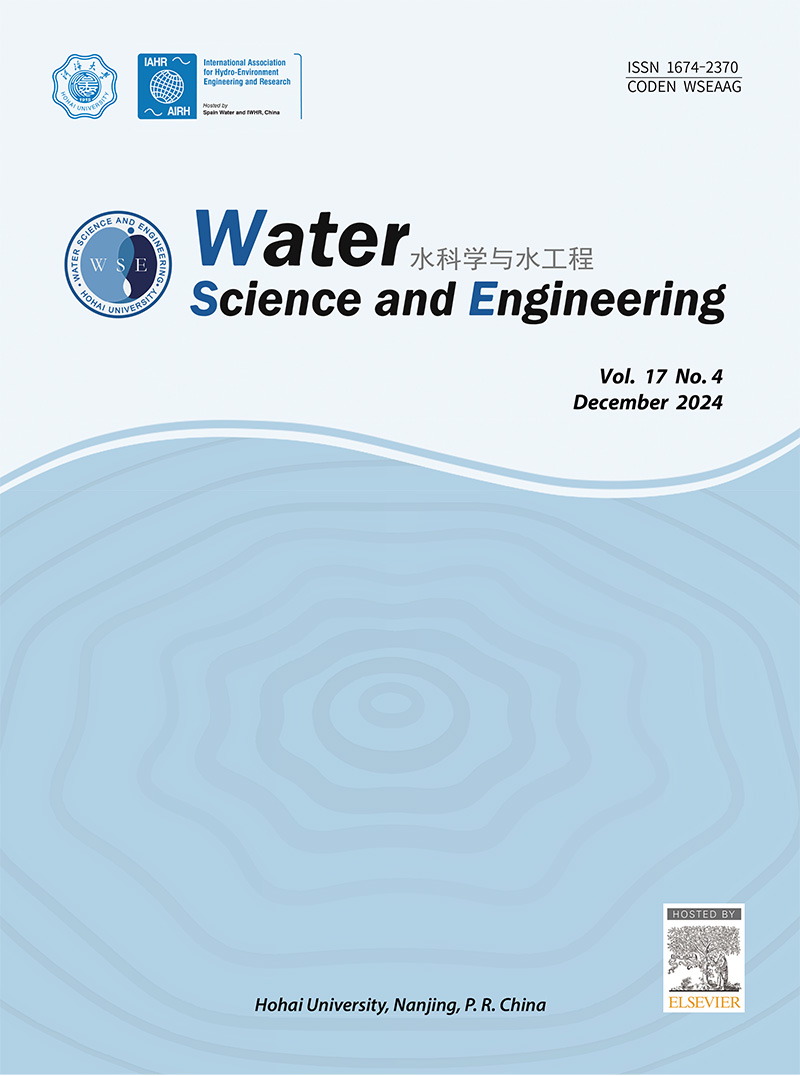应用于光fenton工艺的人工神经网络:一种创新的废水处理方法
IF 4.3
Q1 WATER RESOURCES
引用次数: 0
摘要
人工智能(AI)在包括科学研究在内的各个领域都是革命性的问题解决者。它在化学过程中的应用对于快速优化方案和方法具有显著的潜力。人工智能的一个显著应用是有机化合物的光- fenton降解。尽管这一领域具有很高的新新性和最近的兴趣激增,但缺乏对人工智能在光芬顿过程中的应用的现有文献的全面综合。这篇综述旨在通过深入总结人工神经网络(ANN)在光芬顿过程中的最新应用来弥补这一差距,目的是帮助水处理领域的研究人员识别最关键和相关的变量。它检查了人工神经网络的类型和架构,输入和输出变量,以及这些网络的效率。这些发现揭示了一个迅速扩大的领域,越来越多的出版物强调人工智能在优化光芬顿过程方面的潜力。本文还讨论了使用人工神经网络的优点和缺点,强调需要进一步研究以推进这一有前途的领域。本文章由计算机程序翻译,如有差异,请以英文原文为准。
Artificial neural networks applied to photo-Fenton process: An innovative approach to wastewater treatment
Artificial intelligence (AI) is a revolutionizing problem-solver across various domains, including scientific research. Its application to chemical processes holds remarkable potential for rapid optimization of protocols and methods. A notable application of AI is in the photo-Fenton degradation of organic compounds. Despite the high novelty and recent surge of interest in this area, a comprehensive synthesis of existing literature on AI applications in the photo-Fenton process is lacking. This review aims to bridge this gap by providing an in-depth summary of the state-of-the-art use of artificial neural networks (ANN) in the photo-Fenton process, with the goal of aiding researchers in the water treatment field to identify the most crucial and relevant variables. It examines the types and architectures of ANNs, input and output variables, and the efficiency of these networks. The findings reveal a rapidly expanding field with increasing publications highlighting AI's potential to optimize the photo-Fenton process. This review also discusses the benefits and drawbacks of using ANNs, emphasizing the need for further research to advance this promising area.
求助全文
通过发布文献求助,成功后即可免费获取论文全文。
去求助
来源期刊

Water science and engineering
WATER RESOURCES-
CiteScore
6.60
自引率
5.00%
发文量
573
审稿时长
50 weeks
期刊介绍:
Water Science and Engineering journal is an international, peer-reviewed research publication covering new concepts, theories, methods, and techniques related to water issues. The journal aims to publish research that helps advance the theoretical and practical understanding of water resources, aquatic environment, aquatic ecology, and water engineering, with emphases placed on the innovation and applicability of science and technology in large-scale hydropower project construction, large river and lake regulation, inter-basin water transfer, hydroelectric energy development, ecological restoration, the development of new materials, and sustainable utilization of water resources.
 求助内容:
求助内容: 应助结果提醒方式:
应助结果提醒方式:


